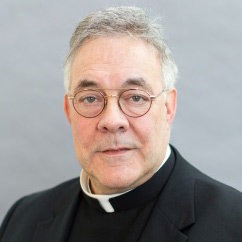The Michigan legislature passed right-to-work legislation today, a landmark event that promises to accelerate the state’s rebound from the near-collapse it suffered in the deep recession of 2008. The bills are now headed to Gov. Rick Snyder’s desk. The right-to-work passage was a stunning reversal for unions in a very blue state — the home of the United Auto Workers. Following setbacks for organized labor in Wisconsin last year, the unions next turned to Michigan in an attempt to enshrine prerogatives for their organizing efforts in the state constitution. A union-backed ballot proposal was handily defeated by voters in the Nov. 6 election.
 But according to some on the Christian left, the right-to-work law is the worst thing that could happen to “workers.” Bishop Thomas Gumbleton, a retired auxiliary bishop of the Catholic Archdiocese of Detroit, argued in an opinion piece that right-to-work “devastates economic justice.” He claims to speak not just for Catholics or for Christians but quite simply for faith communities all over the world:
But according to some on the Christian left, the right-to-work law is the worst thing that could happen to “workers.” Bishop Thomas Gumbleton, a retired auxiliary bishop of the Catholic Archdiocese of Detroit, argued in an opinion piece that right-to-work “devastates economic justice.” He claims to speak not just for Catholics or for Christians but quite simply for faith communities all over the world:
At the core of Christianity, Judaism, Islam and all great religions are the values of dignity and respect, values from which economic justice and the right to organize can never be separated.
Gov. Rick Snyder’s Presbyterian tradition “affirms the rights of labor organization and collective bargaining as minimum demands of justice.” Similar statements have been made by the United Methodist Church, the United Church of Christ, the Union for Reform Judaism and the Evangelical Lutheran Church in America, to name but a few.
However, we do not need statements from on high to understand what we know to be true on the ground. Right-to-work laws do not help the least among us. Rather, they profit those who already hold more power and wealth than is their fair share. They foster extreme inequality, inequality that can only lead to extreme disparities and extreme division.
[ … ]
Just as Catholic bishops united in 1986 to speak against organized efforts to break unions, it is now time for Michigan citizens of all faiths to unite against an unjust law, passed in great haste, which will do great damage to our state. Each of us must take responsibility for speaking out and taking action to prevent a terrible injustice from occurring in Michigan.
I dissent. Michigan’s new right-to-work law is neither “unjust” nor will it “foster extreme inequality.” The law simply gives working people the freedom to choose whether or not they want to be members of a union. What’s more, they are not forced to pay union dues or agency fees as a condition of employment. Another word for this is freedom.
Historically, the Catholic Church has looked favorably on unions — with exceptions, of course. The Church sees unions as one way to look after the well-being of workers and their families. However, this favorable bias does not mean that workers are obligated to join a union, nor that management is obligated to accept the terms of a union. The right to join a union, in Church social teaching, is rooted in the natural right of association, which of course also means that people have the right not to associate. Which is exactly what this legislation addresses; it protects workers from being coerced to association with and paying fees to a group with whom they would rather not join.
Pope Leo XIII addressed the intolerable treatment of workers during the Industrial Revolution in Rerum Novarum. As I have observed earlier on this blog, the “savage capitalism” that occurred several decades ago is not what workers in Michigan face today. The entire thrust of Leo’s encyclical, beginning with its title, was precisely aimed at looking around at the “new things” (Rerum Novarum) that were emerging in his day, and reflecting upon them in the light of Scripture, Tradition and the Natural Law. If the situation for Michigan workers is remotely comparable to the subsistence living conditions under which many workers lived in the latter part of the 19th century, this has somehow escaped my notice.
In Laborem Exercens, Blessed John Paul II wrote: “Unions do not have the character of political parties struggling for power; they should not be subjected to the decision of political parties or have too close links with them.” Paul VI’s offer a caution about unions when he wrote in Octogesmia adveniens (no.14): “Their activity, however, is not without its difficulties. Here and there the temptation can arise of profiting from a position of force to impose, particularly by strikes – the right to which as a final means of defense remains certainly recognized – conditions which are too burdensome for the overall economy and for the social body, or to desire to obtain in this way demands of a directly political nature.”
Writing in the Detroit Free Press in 1995, Larry Reed – then president of the Michigan-based Mackinac Center, concisely framed the issue. “Right-to-work really means the right to work for more – more individual freedom, more jobs and more income in real terms,” he said. “It is not anti-union; it is purely and simply pro-choice. The only thing unions have to fear from right-to-work is the free choice of the very workers union leaders say they are in business to help.”
That, to my mind, is also a good working definition of economic justice, one we can embrace without reservation.

